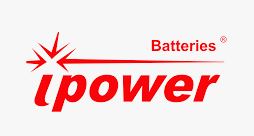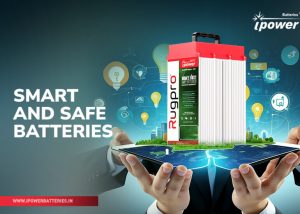The future of EVs and battery technology is incredibly exciting. We are on the cusp of significant advancements in battery technology – from higher energy densities to faster charging times and longer life cycles. Technologies like solid-state batteries and graphene-enhanced batteries will revolutionize the industry, says Vikas Aggarwal, Managing Director, Ipower Batteries Pvt. Ltd. in an interview with Anurima Mondal of EVolution Auto India.

Q: Please walk us through the business journey of Ipower Batteries along with its product range and major milestones.
Vikas Aggarwal: I started Ipower Batteries Pvt. Ltd. with a clear vision: to contribute to India’s green energy movement, particularly through advanced battery technology. We saw a growing demand for energy storage solutions, especially in the electric mobility sector, and knew that lithium-ion batteries were the way forward.
We began by developing NMC (Nickel Manganese Cobalt) and LFP (Lithium Iron Phosphate) batteries, which are perfect for electric vehicles (EVs) because of their efficiency, longevity, and safety. As we grew, we didn’t stop there. We expanded our range with the Rugpro series, using LMFP (Lithium Manganese Iron Phosphate) technology. These batteries are tough and durable, making them ideal for rugged applications where you need higher energy density and longer life cycles.
Our journey also included setting up state-of-the-art manufacturing facilities in Kundali, Haryana. We’ve constantly focused on improving our technology – increasing energy density, reducing charging times, and enhancing safety. Today, we have established ourselves as a key player in India’s rapidly growing EV market, and we’re proud of the milestones we have achieved along the way.
Q: What are the recent developments and future roadmap of Ipower Batteries?

Vikas Aggarwal: One of our most exciting recent developments is the introduction of our Rugpro Battery Series. This series uses LMFP technology, which offers better energy density and a longer lifespan. It’s designed for tough conditions, so whether it’s in EVs or energy storage systems, it performs reliably.
Another major milestone for us was getting approval for our graphene-based batteries, specifically designed for electric two-wheelers. Graphene is an incredible material – it offers better conductivity and faster charging times. This approval puts us at the forefront of the electric mobility sector, especially with electric scooters and motorcycles becoming more popular in India and worldwide.
We’re also expanding into the telecom sector with specialized batteries for telecom towers. The telecom industry needs reliable power, and our batteries are designed to provide that – offering long-lasting backup and robust performance. This move diversifies our product portfolio and helps us tap into a growing market.
Q: Earlier this year, Ipower Batteries became the first Indian company to launch Graphene series lead-acid batteries nationwide. Please tell us more about this achievement and the technology used.
Vikas Aggarwal: Yes, earlier this year, we made a significant leap by launching the Graphene series lead-acid batteries across India. This was a huge milestone for us because it’s not just about introducing a new product – it’s about innovation and leading the charge in the energy storage industry.
Graphene has some fantastic properties, and by integrating it into our lead-acid batteries, we’ve been able to offer a more advanced alternative to traditional batteries. The nationwide launch means that industries and consumers across India can now access this cutting-edge technology. We believe this will drive wider adoption of graphene-enhanced batteries, setting new performance standards in the Indian market.
Q: Could you shed some light on the battery market in India? In your opinion, how can India achieve indigenous battery technology development and reduce its dependency on imports?
Vikas Aggarwal: The battery market in India is on a rapid growth trajectory, driven by the demand for electric vehicles (EVs), renewable energy, and reliable energy storage solutions across various sectors. The government’s push for clean energy and EV adoption has certainly accelerated this growth.
The EV market, in particular, is a significant driver. Lithium-ion batteries, especially NMC and LFP types, are essential for electric cars, two-wheelers, and commercial vehicles. Initiatives like the FAME scheme are boosting EV adoption, which in turn is increasing demand for advanced battery technologies.
Beyond EVs, industries like telecom rely heavily on batteries for uninterrupted power, and the need for reliable, long-lasting batteries continues to grow. However, to truly achieve indigenous battery technology and reduce dependency on imports, we need to focus on domestic manufacturing. That means investing in local supply chains, from raw material sourcing to battery production, and continuing to innovate through research and development.
Q: What are your views on the recent announcement of the Critical Mineral Mission in the Budget 2024? What would be its impact on battery manufacturing and the associated supply chain?
Vikas Aggarwal: The Critical Mineral Mission is a smart and timely move by the government. It’s all about securing the supply of essential minerals like lithium, cobalt, and nickel, which are crucial for industries like battery manufacturing, EVs, and renewable energy. These minerals are often sourced from a few countries, so having a stable and sustainable supply is critical.
By focusing on exploring and developing domestic sources of these minerals, the mission aims to reduce our dependency on imports. This not only strengthens India’s position in the global supply chain but also boosts the economy by creating jobs and fostering innovation in battery technology.
Q: The current Indian government has set a target of achieving 30 percent electric vehicle penetration by 2030. What are your views on the overall EV market in India? What additional measures could be taken by the government to boost the EV industry?
Vikas Aggarwal: The target of 30 percent EV penetration by 2030 is ambitious and shows the government’s commitment to sustainable mobility. At Ipower Batteries, we are excited about this goal because the Indian EV market has tremendous potential. We are already seeing a strong push in public transportation and electric two-wheelers, but there’s still a lot of room for growth in the four-wheeler segment.
One of the key challenges is the development of charging infrastructure. We’ve made progress, but more needs to be done, especially in semi-urban and rural areas. Battery technology is also crucial, and we’re continuously working on innovations like graphene-enhanced batteries to make EVs more accessible and affordable.
Government incentives under schemes like FAME II have been helpful, but expanding subsidies, tax benefits, and low-interest financing options could further accelerate adoption. Promoting domestic manufacturing of EV components, including batteries, is also essential to reducing dependency on imports. Investing in research and development, and encouraging collaboration between industry and academia, will drive the next wave of innovation in the EV sector.
Q: How do you envision the future of EV and battery technology, and what role would you like to play in that evolution?
Vikas Aggarwal: The future of EVs and battery technology is incredibly exciting. We are on the cusp of significant advancements in battery technology – from higher energy densities to faster charging times and longer life cycles. Technologies like solid-state batteries and graphene-enhanced batteries will revolutionize the industry.
At Ipower Batteries, we’re committed to being at the forefront of this evolution. We’re already developing and launching innovative battery solutions, and our focus on R&D ensures that we stay ahead of the curve. Our goal is to contribute meaningfully to the future of electric mobility and energy storage, helping to make these technologies more accessible and sustainable.
Q: What are the current challenges facing the storage industry, and what strategies could be implemented to overcome them?
Vikas Aggarwal: The energy storage industry is critical for the future of sustainable energy and electric mobility, but it faces several challenges. The high cost of advanced energy storage systems, particularly lithium-ion batteries, is one of the biggest hurdles. These costs are driven by expensive raw materials and complex manufacturing processes.
We also face supply chain vulnerabilities due to our reliance on imported raw materials like lithium and cobalt. This dependency can lead to price fluctuations and availability issues.
Another challenge is recycling. As battery usage increases, so does the need for proper recycling infrastructure. We need to ensure that batteries are disposed of and recycled responsibly to reclaim valuable materials and reduce environmental impact.
To overcome these challenges, continuous investment in R&D is essential. We need to focus on developing more efficient and cost-effective battery chemistries and building a domestic supply chain for materials and components. Encouraging local mining, processing, and manufacturing through government incentives and industry collaboration will help create a more resilient energy storage ecosystem.